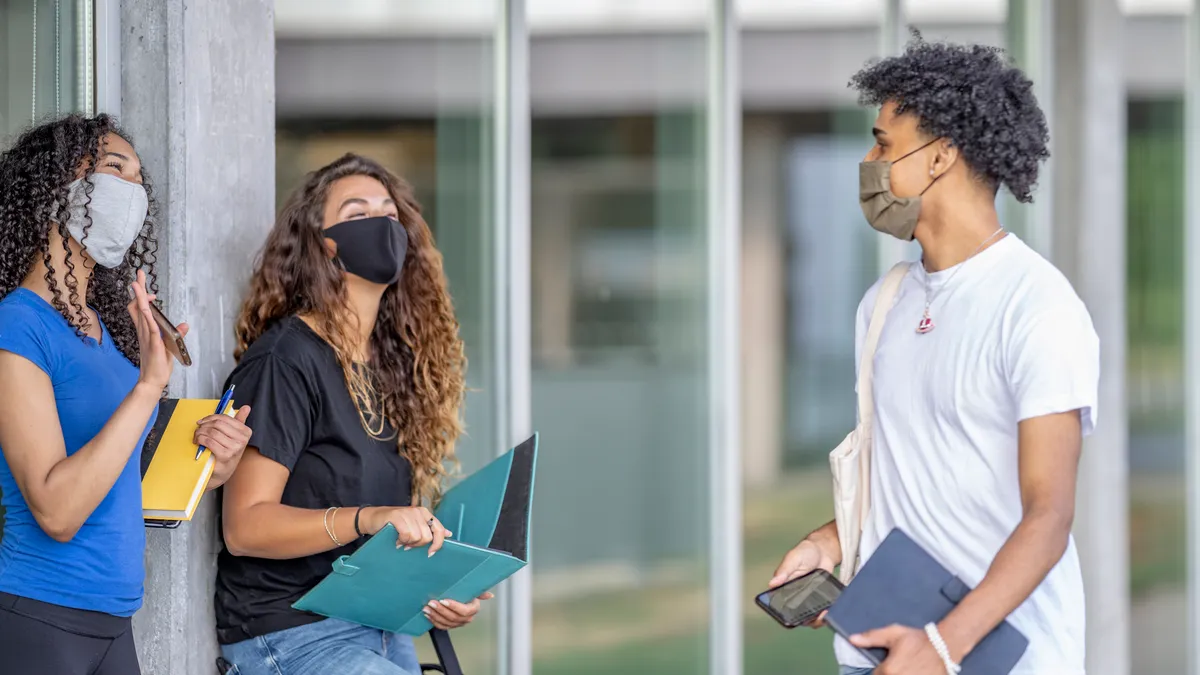Dive Brief:
-
Students need feedback presented in a way that encourages them to absorb and use constructive criticism instead of discard it, Baylor University professor and Center for Teaching Quality consultant Jonathan Eckert writes of Edutopia, suggesting an eight-step plan based on the work of UK educator James Nottingham.
-
To start, students should have a solid grasp of what’s expected from their assignment, including goals and a rubric they can follow, and then create their most polished "first final draft" to submit to peers for feedback or review on their own, checking against the rubric. Students should then revise their work, which should be submitted to the teacher for additional feedback.
-
The final draft, which incorporates both peer and teacher feedback, is then submitted to the teacher and graded. Finally, both students and teachers reflect on the final grade and how much students have grown in their skills over the course of the assignment.
Dive Insight:
Teachers are tasked with giving feedback to students often. By providing effective feedback, educators can help students perform better on assignments and have a clearer understanding of the finished product and what did or did not work. Feedback, especially the kind that helps students improve, can also help students model how to offer constructive criticism of their peers’ work — a key skill they will use in the working world, as well.
Feedback can be a stepping stone in helping students boost performance in their work, giving them detailed steps to follow as they improve and strengthen skills where they may need assistance. Effective feedback can help pupils develop the skills to review their own work, and the confidence and ability to deliver effective feedback themselves. The process of taking a look at the work of fellow students can also help students understand how and why assessments are crafted.
When offering feedback, educators should be aware of a student’s specific need so they can offer personalized guidance to help students reach their potential. Some students may be able to handle direct comments, while others may require more care when criticism is delivered. And teachers may want to start by bringing up the strong points first, before being specific about the areas in a project where students may need to improve.
Peer feedback is also an opportunity to reinforce the importance of thoughtfulness and empathy, requiring students to keep others' feelings and perspectives in mind as they strengthen their own teamwork skills.






 Dive Awards
Dive Awards





